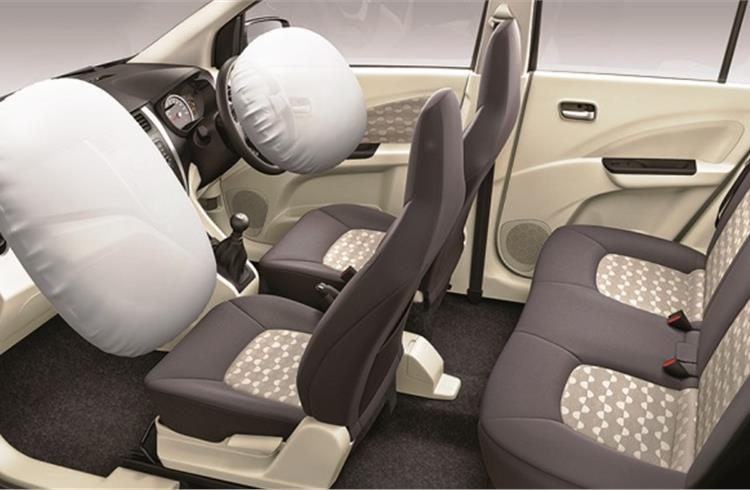Government makes airbags and speed warning mandatory for new cars from October 2017
Reports quoted a MoRTH draft notification on this, adding that for cars already on sale, the rules will be applicable from October 2018.
The government plans to make it mandatory for automakers to equip cars with airbags, rearview sensors, speed warning systems with audible beeps, and seatbelt reminder as standard fitment from October 2017.
Reports quoted a Ministry of Road Transport and Highways (MoRTH) draft notification on this, adding that for cars already on sale, the rules will be applicable from October 2018.
Engineering airbags into yet-to-be-launched cars, however, will be easier than equipping some of the old models. Many current cars in the budget segment do not have airbags and, with weak body shells, may not be able to provide protection even after being fitted with one. Manufacturers will have to weigh the costs of structural reengineering against sales and it is likely that a few models may be put to rest.
Speed alert systems will warn the driver if the vehicle cruises above 80kph, followed by a persisting audio alert on exceeding 90, said a PTI report quoting the notification. It added that the ministry sought suggestions, including objections, from automakers on the draft.
Despite having rearview mirrors, most vehicles still have a blind spot due to which small children or objects closer to the ground are not always visible to the driver. This problem of lack of rearward vision will be ironed out to a great extent by reverse parking sensors.
Reverse parking sensors or reversing cameras are part of standard equipment on most premium vehicles. On affordable cars, these features are available only in the higher variants. For instance, the Tata Tiago priced around Rs 5 lakh is the most affordable car to be available with reversing sensors. Vehicle owners can also go for aftermarket fitments for as low as Rs 2,000 for basic reversing sensors, with the cost rising north of Rs 4,000 for a reverse camera.
The government meanwhile plans to set up a vehicle safety assessment programme known as Bharat New Vehicle Safety Assessment Program (Bharat NCAP), wherein passenger vehicles will receive star ratings based on how they perform under various crash tests and other parameters from October 2017.
With an increased focus on safety, the government aims to reduce road accidents and road fatalities in India. The country has the highest number of road fatalities in the world with over 140,000 people dying every year, and leaving over 550,000 injured.
Also read:
- Tamil Nadu, Maharashtra, MP, Kerala and UP see highest increase in road accidents
- 16 people killed every hour on Indian roads in 2015
Source: Autocar India
RELATED ARTICLES
IIT Bombay inaugurates Arun Firodia Research Floor
IIT Bombay, one of India’s top technical and research institutions, honours Kinetic Group chairman Dr Arun Firodia, one ...
Maruti Suzuki expands capacity at Manesar plant by additional 100,000 units
New assembly line at Plant A expands total manufacturing capacity at the Manesar plants to 900,000 units per annum. Alon...
Hyundai and Kia partner Exide Energy to produce LFP batteries in India
Partnership with Exide Energy enables Hyundai Motor and Kia to equip future EVs in the Indian market with locally produc...





 10 Nov 2016
10 Nov 2016
 5097 Views
5097 Views





 Autocar Pro News Desk
Autocar Pro News Desk




